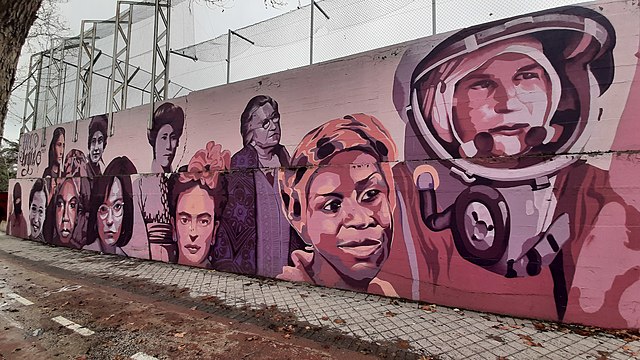The long road to gender parity, a key tool for overcoming inequalities for women in politics, is showing increasingly visible results, with projections in different fields. The electoral processes underway in the region are already showing a less exclusive and unfair panorama in terms of gender balance. This progress is not limited to representation but is associated with the realisation of rights and pending transformations for society as a whole.
By Magdalena León T.
It is in this context that the candidacies of two women have been announced as possible finalists for the upcoming elections in Mexico, a significant development that has aroused particular interest in the region. If there are shared roots and traits in the realities of our countries – including patriarchal power structures – these are configured and live in the complex economic, social, and cultural framework that defines our particular histories. Thus, to approach the reality of a country, there is no room for generalities, nor only cold data.
A group of members of the Latin American Network Women Transforming the Economy held a dialogue with colleague Lídice Ramos, who, from Monterrey, but with an intellectual and political background fused with feminist and transformative causes in Our America, offered us a panorama similar to a mural. We were able to appreciate, together with today’s data, facts that connect experiences, times, and territories, of different scales; that show the every day and the transcendental, the tendencies and the differences.
We were thus able to glimpse a path that links the newest demands with the experiences of decades ago, which have sometimes been a condition of possibility for what now appears as an achievement. A country that has been able to return to the path of its transformative stages, to rediscover processes and issues that suffered a long pause or blockage due to neoliberalism, whose ravages determine, for the time being, a more limited scope for change. A model whose global hegemony prevails, which means that the conditions for fundamental transformations need to be reassembled.
Elements such as redistribution, the recovery of the public sector, the protection of the national market and the affirmation of sovereignty appear on the balance sheet. There is the dynamisation of the popular economy, of the community economy in the south of the country, even with the dilemmas surrounding growth in these contexts. There is the challenge and the efforts to decommoditise care services, which are seen as strategic. The example of community centres designed to fulfill utopias emerges, in which genders and generations articulate and support each other in the face of the challenges of everyday life, while building other cultural horizons at the local level.
We were able to sense the realities of male and female teachers involved in a crucial, disruptive and historic educational reform, while at the same time improving their working conditions. Those of feminist economists who are committed to a ‘micro’ experience but who are fighting in the crucial terrain of the financial system. Diverse lines of solidarity economy, of local markets that seek to close the way to corporate control, eager to capture the liquidity that flows thanks to redistribution policies.
There are experiences led by young women, who already ‘dare’ to try egalitarian schemes of action and management from other certainties, from other supports. There is also the revaluation and integration of ancestral knowledge in the education and health systems.
How profound can these changes be? Now that we have commemorated the 50th anniversary of the coup against the Unidad Popular project in Chile, the historical lesson resounds that governments of change mobilise and stimulate the social force called to be at the centre of transformations. Precisely ‘critical mass’ necessary for the change of model, which was noted in the dialogue as still weak and fragile. With limits and contradictions, this stage of the Fourth Transformation has managed to unleash these forces.
The ‘mural method’ of our dialogue proves to be necessary for the understanding of a transformative feminist agenda, which is not limited sectorally to women’s or gender issues (generally associated with social and cultural issues), but which covers all the problems and ambits of a country. It is particularly linked to everything that has to do with the extended reproduction of life, both in practical and immediate terms and in terms of subverting the order to displace the reproduction of capital as the axis of the economy.
We see that continuing this process and deepening it is what is at stake in the new period with the first female president. Now that being a woman finally seems to be a merit and not a disadvantage in electoral terms, and that feminist causes are playing positively to the point that efforts are being made to capture them, it is important to differentiate between occasional alignments and genuine commitments, both at the level of the candidates and their environments. Thus, it is clear to us that Claudia Sheinbaum is called to be a feminist president which Mexico and Latin America can no longer wait for.
Magdalena León T., Ecuadorian economist. Member of the CLACSO WG ‘Feminisms, resistances and emancipation’.










